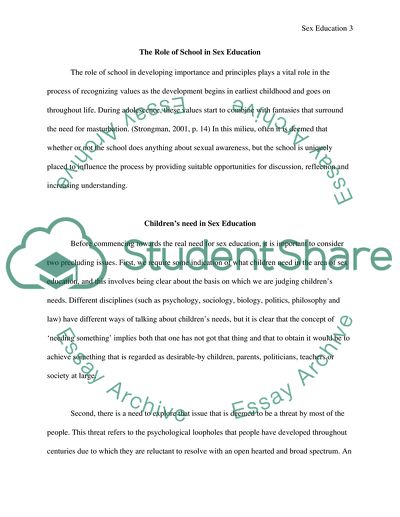Cite this document
(“The importance of sex education Essay Example | Topics and Well Written Essays - 2750 words”, n.d.)
The importance of sex education Essay Example | Topics and Well Written Essays - 2750 words. Retrieved from https://studentshare.org/gender-sexual-studies/1537817-the-importance-of-sex-education
The importance of sex education Essay Example | Topics and Well Written Essays - 2750 words. Retrieved from https://studentshare.org/gender-sexual-studies/1537817-the-importance-of-sex-education
(The Importance of Sex Education Essay Example | Topics and Well Written Essays - 2750 Words)
The Importance of Sex Education Essay Example | Topics and Well Written Essays - 2750 Words. https://studentshare.org/gender-sexual-studies/1537817-the-importance-of-sex-education.
The Importance of Sex Education Essay Example | Topics and Well Written Essays - 2750 Words. https://studentshare.org/gender-sexual-studies/1537817-the-importance-of-sex-education.
“The Importance of Sex Education Essay Example | Topics and Well Written Essays - 2750 Words”, n.d. https://studentshare.org/gender-sexual-studies/1537817-the-importance-of-sex-education.


